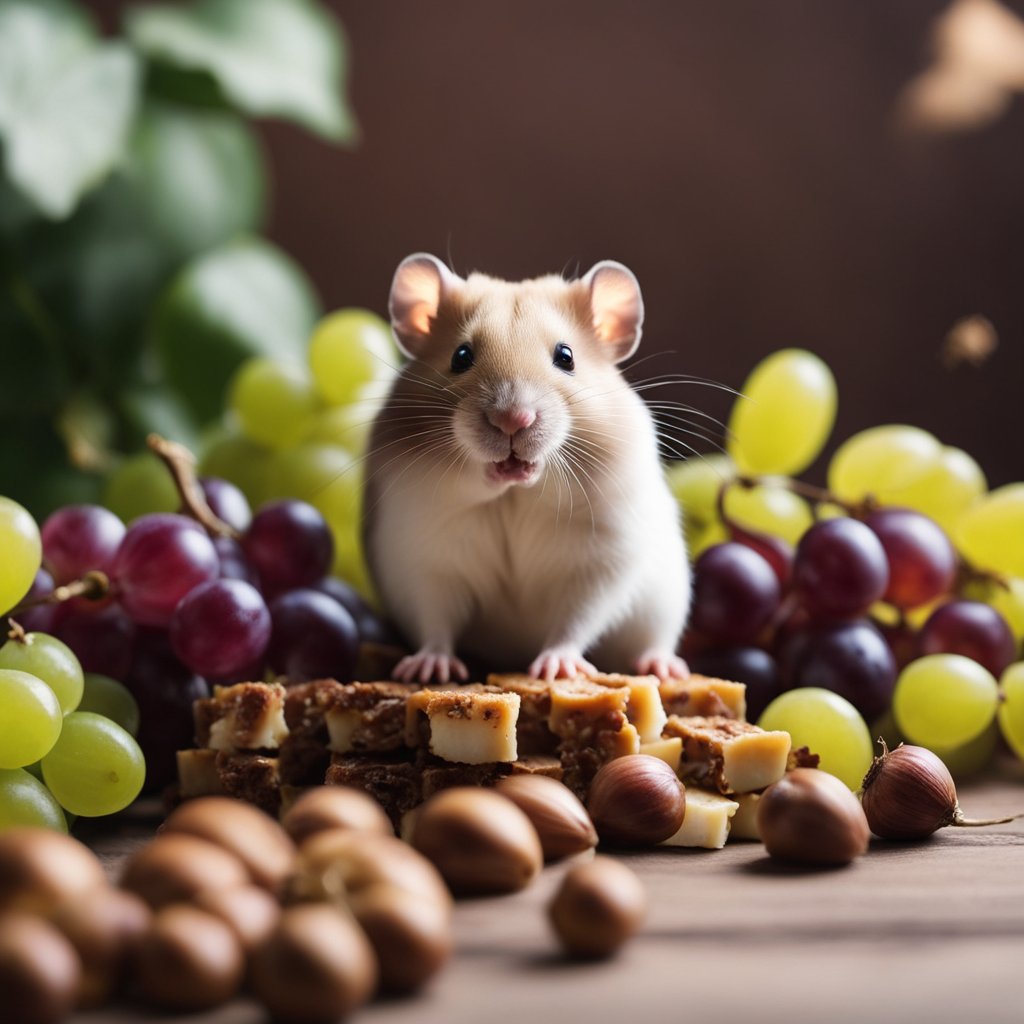What Foods are Poisonous to Hamsters: A Comprehensive Guide
Hamsters are cute and cuddly pets that are loved by many. They are easy to take care of and don’t require a lot of space. However, when it comes to feeding them, it’s important to know what foods are safe and what foods are poisonous. In this article, we will discuss what foods are poisonous to hamsters and what symptoms to look out for if your hamster has been poisoned.
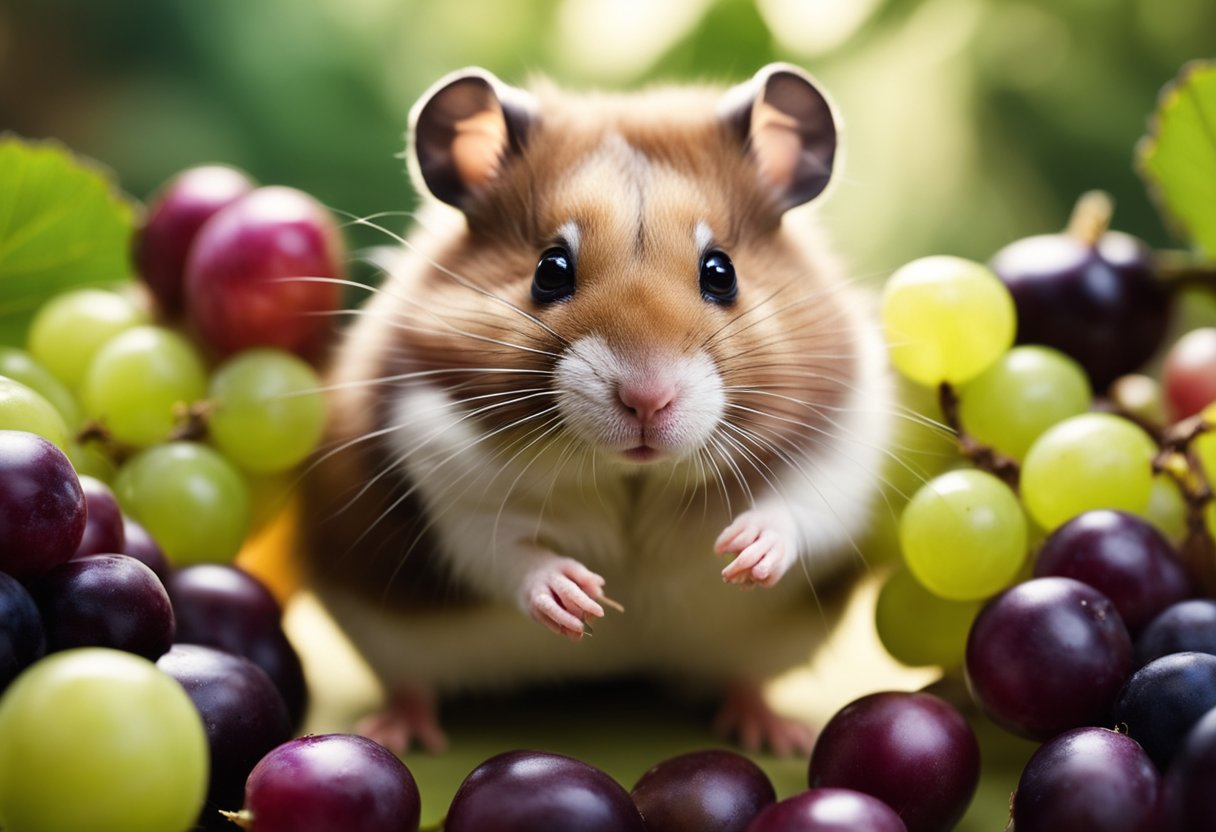
Hamsters have a very sensitive digestive system, and certain foods can be toxic to them. Some common foods that are toxic to hamsters include garlic, onions, tomatoes, and potatoes. These foods can cause digestive problems, such as diarrhea and vomiting, and can even lead to death in severe cases. Other foods that are toxic to hamsters include chocolate, caffeine, and alcohol.
If you suspect that your hamster has been poisoned, it’s important to act quickly. Symptoms of poisoning in hamsters can include lethargy, loss of appetite, diarrhea, vomiting, and seizures. If you notice any of these symptoms, take your hamster to the vet immediately. Poisoning can be very serious and can lead to death if left untreated.
Key Takeaways
- Hamsters have a sensitive digestive system and certain foods can be toxic to them.
- Common foods that are toxic to hamsters include garlic, onions, tomatoes, and potatoes.
- If you suspect your hamster has been poisoned, look out for symptoms such as lethargy, loss of appetite, diarrhea, vomiting, and seizures, and take your hamster to the vet immediately.
Common Foods Toxic to Hamsters
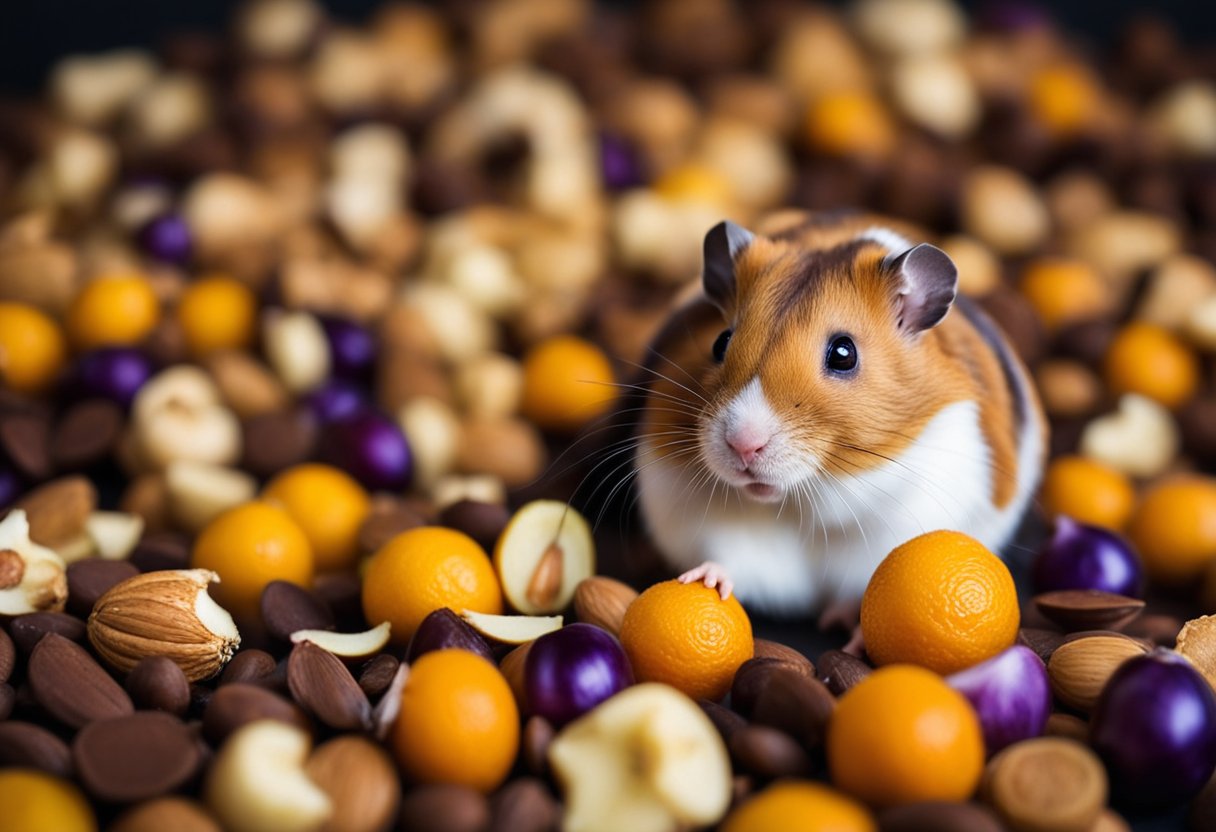
As a responsible pet owner, it’s important to be aware of what foods are toxic to your hamster. Here are some common foods that you should avoid feeding your hamster:
Human Snacks and Treats
Hamsters have a sensitive digestive system and cannot tolerate many human snacks and treats. Some common snacks and treats that are toxic to hamsters include chocolate, candy, chips, and sugary foods. These foods can cause digestive problems, obesity, and even death in hamsters. It’s best to stick to hamster-specific treats that are safe for your furry friend.
Dangerous Fruits and Vegetables
While fruits and vegetables may seem like a healthy option for your hamster, some can be toxic and should be avoided. Garlic, onions, and tomatoes are all dangerous for hamsters and can cause digestive problems and even death. Additionally, rhubarb and citrus fruits are also toxic and should be avoided.
Harmful Plant Materials
Certain plant materials can be harmful to hamsters if ingested. Avocado, for example, contains persin, which is toxic to many animals, including hamsters. Similarly, apple seeds, cherry pits, and peach pits all contain cyanide and should be avoided. It’s also important to avoid feeding your hamster any plants or flowers that you are unsure of, as many can be toxic.
By being aware of the common foods that are toxic to hamsters, you can help ensure that your furry friend stays healthy and happy. Stick to a diet of high-quality hamster food and treats made specifically for small animals, and avoid any foods that could be harmful to your pet.
Symptoms of Poisoning in Hamsters
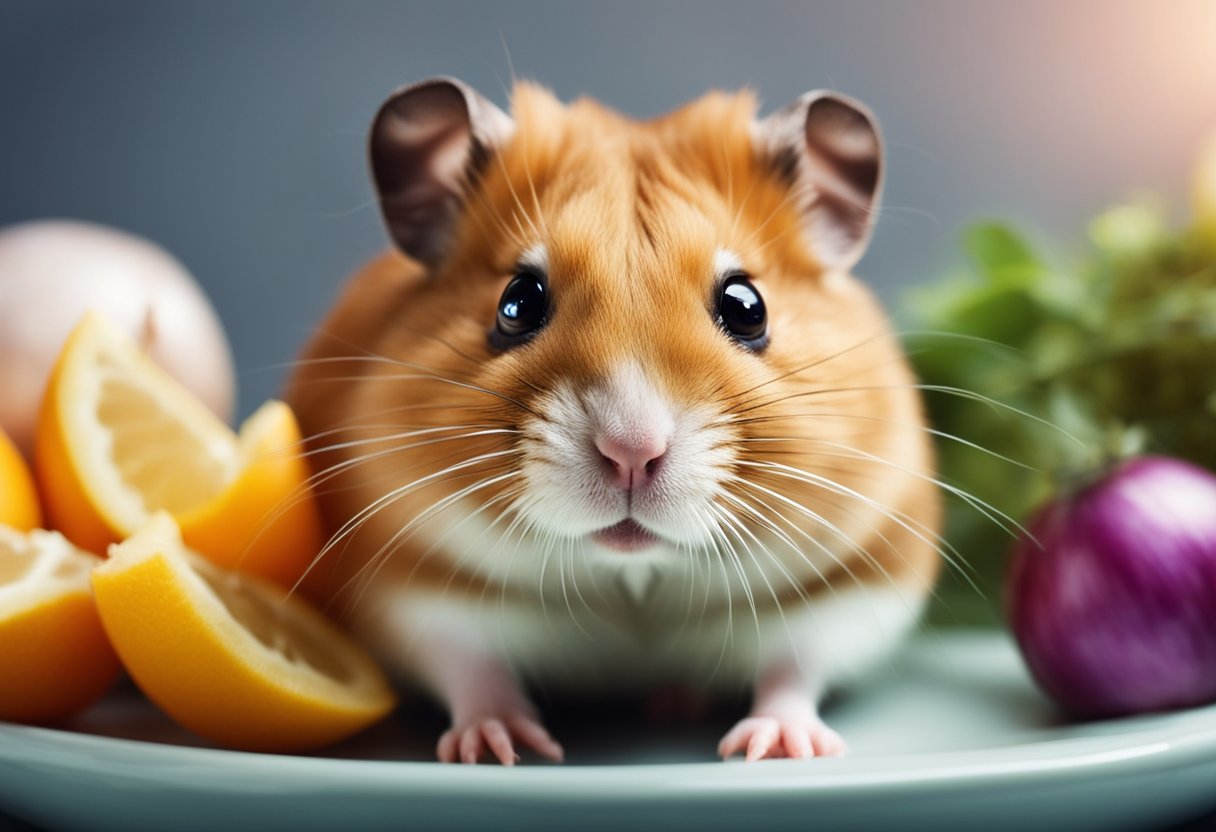
As a responsible pet owner, it’s important to know the symptoms of poisoning in hamsters. If you suspect that your hamster has consumed something poisonous, you should seek veterinary care immediately.
Here are some common symptoms of poisoning in hamsters:
- Lethargy and Weakness: Hamsters that have consumed a toxic substance may become lethargic and weak. They may appear to be less active than usual and may have difficulty moving around.
- Loss of Appetite: Hamsters that have ingested something poisonous may lose their appetite. They may refuse to eat or drink, and may show signs of dehydration.
- Diarrhea and Vomiting: Diarrhea and vomiting are common symptoms of poisoning in hamsters. If you notice that your hamster has loose stools or is vomiting, it’s important to seek veterinary care immediately.
- Difficulty Breathing: Some toxic substances can cause respiratory distress in hamsters. If you notice that your hamster is having difficulty breathing, it’s important to seek veterinary care immediately.
- Convulsions and Seizures: In severe cases, hamsters that have ingested a toxic substance may experience convulsions or seizures. If you notice that your hamster is experiencing seizures, it’s important to seek veterinary care immediately.
Remember, prevention is always the best course of action. By being aware of the foods and substances that are poisonous to hamsters, you can help keep your furry friend safe and healthy.
Resources
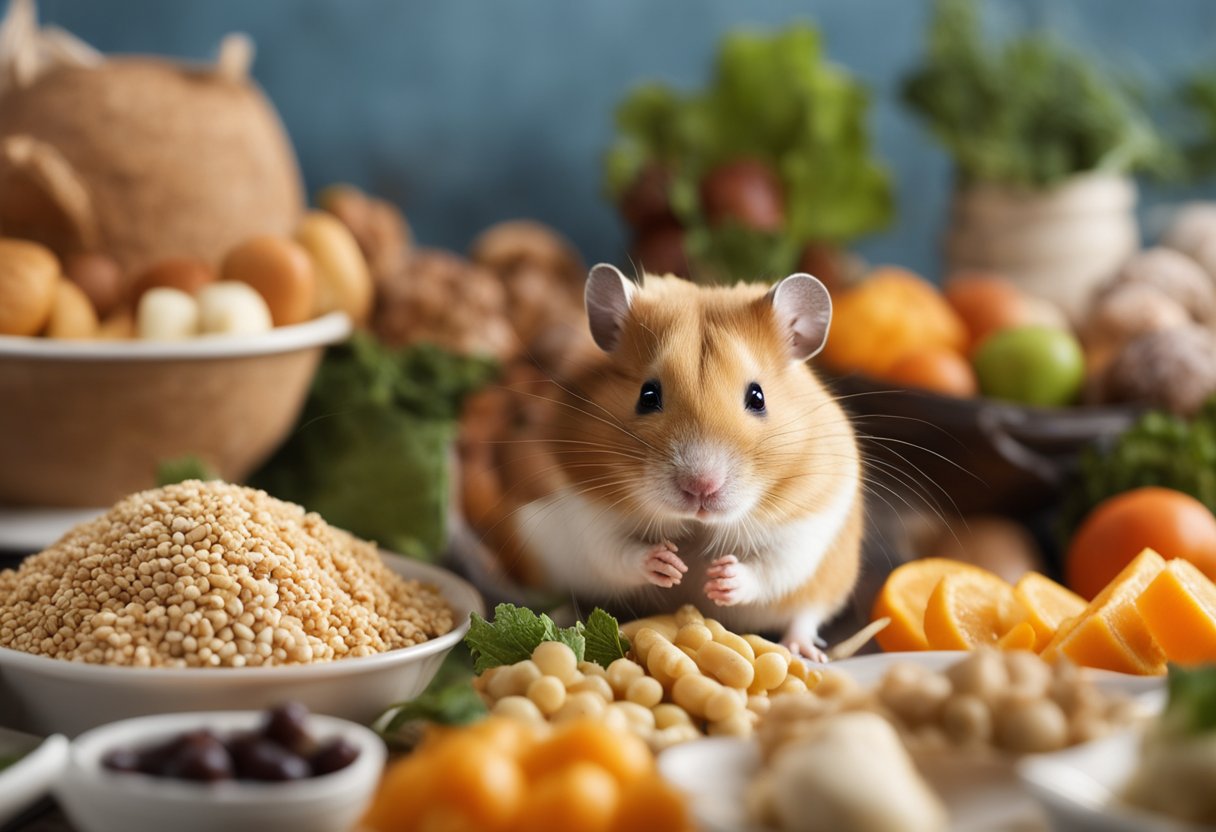
If you want to ensure that your hamster stays healthy and happy, it is important to be aware of the foods that are poisonous to them. In this section, we will provide you with some resources that can help you identify which foods to avoid feeding your hamster.
Hamsters101.com
Hamsters101.com has a comprehensive list of 14 foods that are dangerous to hamsters. This list includes foods such as bitter almonds, unwashed vegetables, black/white pepper, garlic, onions, tomatoes, and potatoes. The website provides a brief explanation as to why these foods are harmful to hamsters.
HamsterGeek.com
HamsterGeek.com has an easy-to-use checklist of foods that hamsters can’t eat. The list includes foods such as eggplant, canned or processed foods, almonds, and peanuts. The website also provides alternatives for some of the foods that hamsters should avoid.
The Dodo
The Dodo has an article that lists 11 safe foods for hamsters as well as 7 foods to avoid. The article provides a brief explanation as to why each food is safe or harmful to hamsters.
The Hamster Forum
The Hamster Forum has a safe and unsafe food list for hamsters that includes foods such as onions, spices, sugary foods, and rhubarb leaves. The website also includes a list of safe baby foods for hamsters.
By using these resources, you can ensure that you are feeding your hamster a healthy and safe diet. Remember to always do your research before introducing new foods to your hamster’s diet.
Conclusion
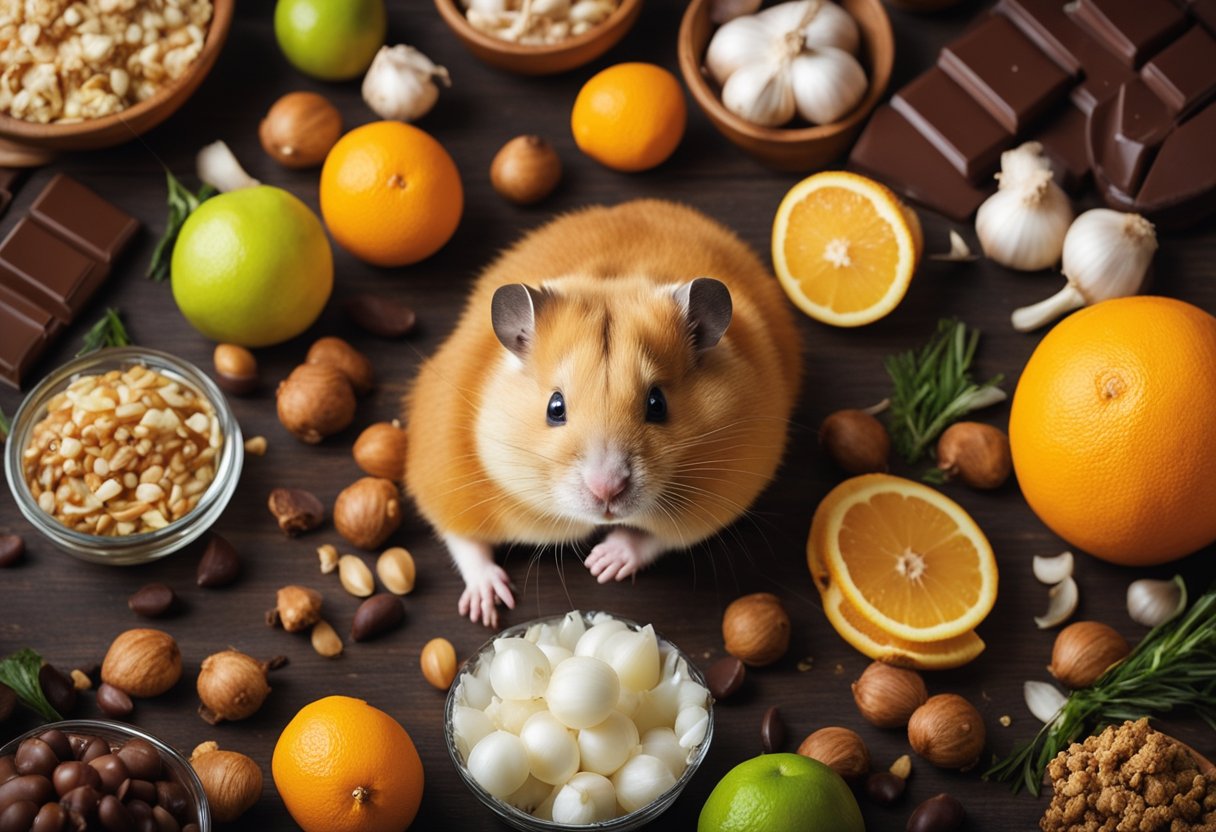
In conclusion, it is important to be aware of the foods that are poisonous to hamsters in order to keep them safe and healthy. Some foods, such as raw potatoes, contain toxins that can be fatal to hamsters and should be avoided at all times. Other foods, such as onions and garlic, can cause digestive problems and should only be given in small quantities.
It is also important to note that not all fruits and vegetables are safe for hamsters to eat. While some, like apples and carrots, are healthy and nutritious, others, like grapes and citrus fruits, can cause health problems if consumed in large amounts.
To ensure that your hamster stays healthy, it is best to stick to a diet of commercial hamster food supplemented with small amounts of fresh fruits and vegetables. Always consult with a veterinarian before introducing any new foods to your hamster’s diet.
By being aware of the foods that are poisonous to hamsters and taking steps to keep them safe, you can help ensure that your furry friend lives a long and healthy life.
Frequently Asked Questions
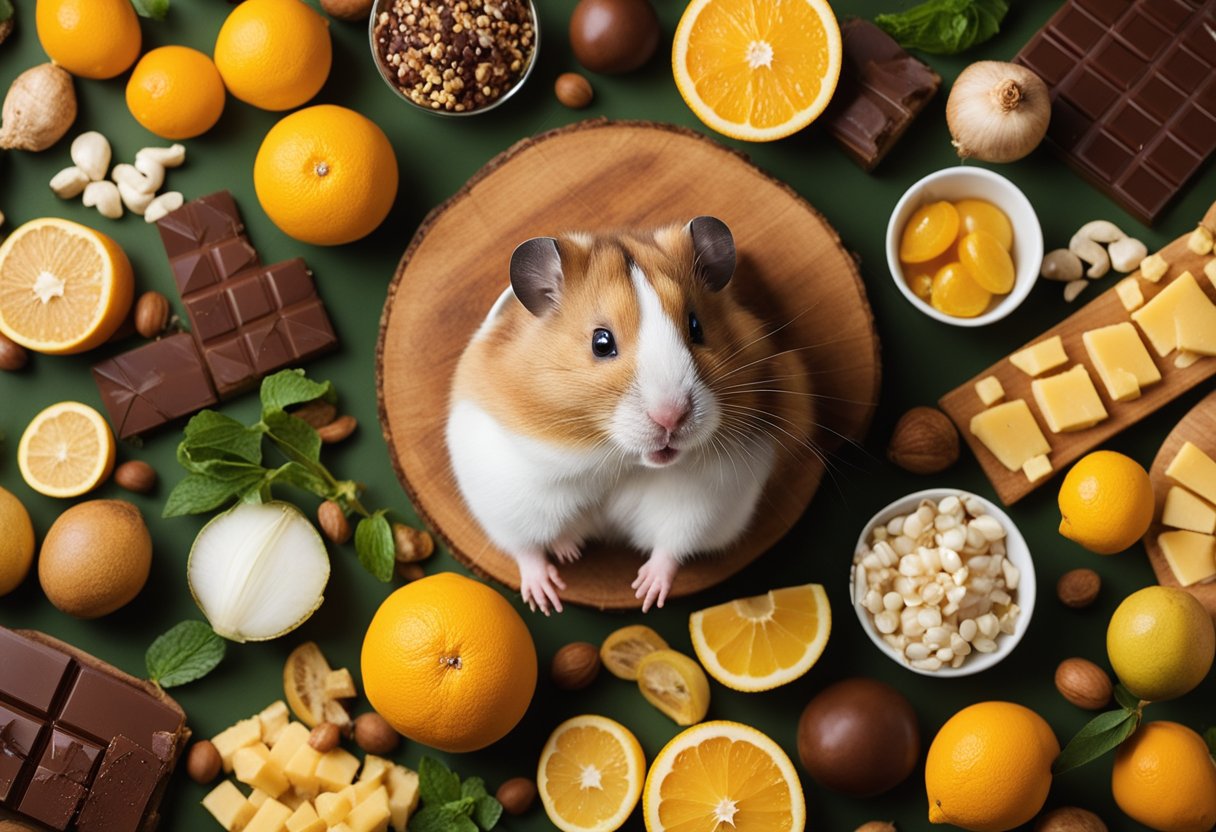
Which fruits should be avoided in a hamster’s diet?
Hamsters can eat a variety of fruits, but some fruits are not suitable for their consumption. Fruits with high sugar content should be avoided as they can cause obesity and diabetes in hamsters. Fruits like grapes, raisins, cherries, and citrus fruits can cause digestive problems, and should therefore be avoided.
Are there any specific vegetables that are harmful to hamsters?
Some vegetables can be harmful to hamsters and should be avoided. Raw potatoes, onions, and garlic contain toxic compounds that can cause digestive problems and even lead to death in extreme cases. Rhubarb and tomato leaves are also toxic to hamsters and should be avoided.
What common human foods can cause illness in hamsters?
Hamsters have a sensitive digestive system and some human foods can cause severe illness or even death. Chocolate, caffeine, and alcohol are toxic to hamsters and can cause seizures and heart problems. Salty and sugary foods can also cause digestive problems and obesity.
Can certain nuts be toxic to hamsters?
Some nuts can be toxic to hamsters and should be avoided. Almonds, for example, contain cyanide and can cause respiratory problems and even death. Other nuts like cashews, macadamia nuts, and walnuts are high in fat and can cause obesity and digestive problems.
What snacks are considered unsafe for hamster consumption?
Hamsters enjoy treats, but some snacks can be harmful to their health. Processed foods like chips and cookies are high in salt and sugar, and can cause digestive problems and obesity. Hamsters should also avoid sugary snacks like candy and honey, which can cause dental problems and obesity.
How can food poisoning manifest in hamsters?
Food poisoning in hamsters can manifest in a variety of ways, including diarrhea, vomiting, lethargy, and loss of appetite. If you suspect that your hamster has eaten something harmful, you should monitor their behavior and seek veterinary care if necessary. Dehydration is a common complication of food poisoning, so it is important to ensure that your hamster has access to clean water at all times.
